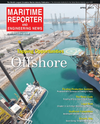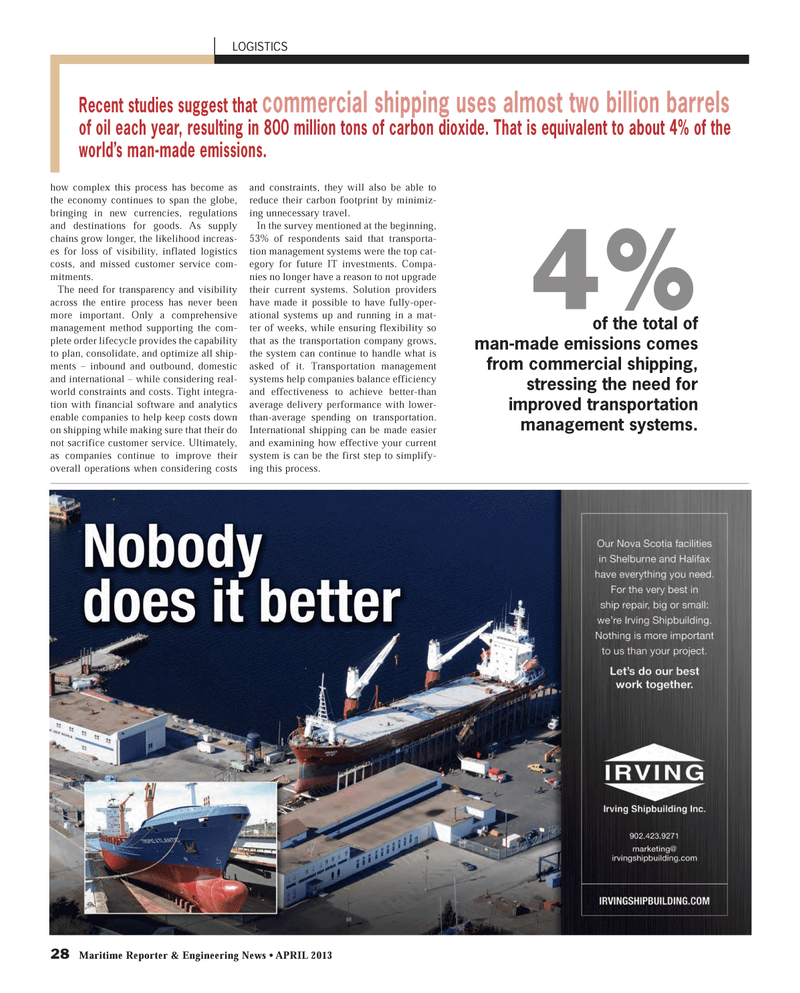
Page 28: of Maritime Reporter Magazine (April 2013)
Offshore Energy Edition
Read this page in Pdf, Flash or Html5 edition of April 2013 Maritime Reporter Magazine
28 Maritime Reporter & Engineering News ? APRIL 2013 how complex this process has become as the economy continues to span the globe, bringing in new currencies, regulations and destinations for goods. As supply chains grow longer, the likelihood increas- es for loss of visibility, inflated logistics costs, and missed customer service com-mitments. The need for transparency and visibility across the entire process has never been more important. Only a comprehensive management method supporting the com-plete order lifecycle provides the capability to plan, consolidate, and optimize all ship-ments ? inbound and outbound, domestic and international ? while considering real-world constraints and costs. Tight integra- tion with financial software and analytics enable companies to help keep costs down on shipping while making sure that their do not sacrifice customer service. Ultimately, as companies continue to improve their overall operations when considering costs and constraints, they will also be able to reduce their carbon footprint by minimiz-ing unnecessary travel.In the survey mentioned at the beginning, 53% of respondents said that transporta-tion management systems were the top cat-egory for future IT investments. Compa- nies no longer have a reason to not upgrade their current systems. Solution providers have made it possible to have fully-oper- ational systems up and running in a mat-ter of weeks, while ensuring flexibility so that as the transportation company grows, the system can continue to handle what is asked of it. Transportation management systems help companies balance efficiency and effectiveness to achieve better-than average delivery performance with lower- than-average spending on transportation. International shipping can be made easier and examining how effective your current system is can be the first step to simplify-ing this process.LOGISTICSRecent studies suggest that commercial shipping uses almost two billion barrels of oil each year, resulting in 800 million tons of carbon dioxide. That is equivalent to about 4% of the world?s man-made emissions. 4%of the total of man-made emissions comes from commercial shipping, stressing the need for improved transportation management systems.MR #4 (26-33).indd 28MR #4 (26-33).indd 284/2/2013 2:11:18 PM4/2/2013 2:11:18 PM

 27
27

 29
29
